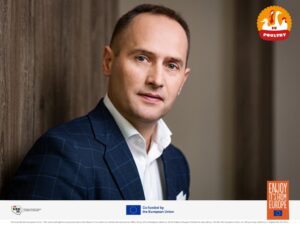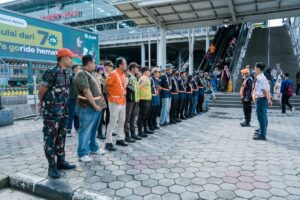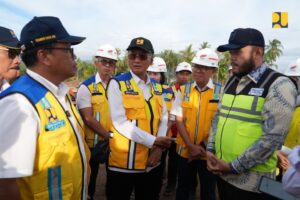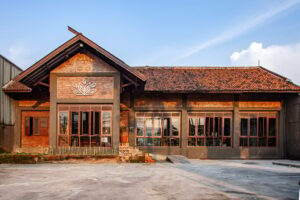Transformational Leaders From Mindanao Regions
Mindanao (located in the southernmost part of the Philippines) is known for its diverse population, vibrant cultures, and a long history of transformational leadership. Over the years, many leaders have come from Mindanao, making important contributions to various fields such as governance, education, business, and social development. Their visionary approaches and dedication to improving their communities have secured their positions in Philippine history and beyond. In this article, we will explore the unique qualities of transformational leadership; highlight notable examples from Mindanao’s region, and answer some common questions about leadership in this dynamic area of the country. However, it’s essential to understand the impact of these leaders, because their influence extends far beyond local borders.
What Makes Transformational Leaders Unique?
Transformational leaders motivate change by encouraging teamwork, empowering their communities, and tackling urgent social issues. In Mindanao, these leaders usually show several key traits (although some may vary): Visionary Thinking: They possess clear long-term goals for development and peace. Community Focus: They place the welfare of the diverse ethnic and religious groups first. Adaptability: In a region with a complex history and socio-political challenges, transformational leaders adjust to difficulties (however, they keep their core values intact). Empathy and Inclusivity: They connect cultural gaps, promoting unity among groups with different traditions. This approach is vital because it helps to create a more harmonious society.
Transformational Leaders From Mindanao
Ramon Magsaysay (the Champion of the Common Man) was not born in Mindanao; however, his presidency impacted the region. His administration focused on agrarian reform and social justice, which improved conditions for farmers and indigenous peoples in Mindanao.
Bai Rohaniza Sumndad-Usman, who hails from Marawi City, is a well-known peace advocate. As the founder of the Teach Peace Build Peace Movement, she has committed her life to promoting peace education and interfaith dialogue across Mindanao.
Manny Piñol (the former Agriculture Secretary), a native of Cotabato, has worked tirelessly to advance agricultural programs in Mindanao. His efforts have greatly boosted farming and fisheries, providing sustainable livelihoods to rural communities.
Senator Aquilino “Nene” Pimentel Jr. was born in Cagayan de Oro City and strongly advocated decentralization and local autonomy. Although he is known as the father of the Local Government Code, he empowered municipalities and provinces, helping foster development in Mindanao and beyond.
Maria Ressa: Amplifying Voices Through Journalism (Although) Maria Ressa’s roots trace back to Zamboanga, her transformational impact is global. As a Nobel Peace Prize laureate and co-founder of Rappler, she has championed press freedom, raising awareness about issues affecting Mindanao and the world. The Role of Local Leaders in Transforming Mindanao: Local leaders also play a pivotal role in shaping the region. Governors, mayors, and community leaders drive grassroots movements, focusing on education, disaster response,e, and cultural preservation. Their efforts ensure that Mindanao’s vast potential continues to unfold (despite) challenges. However, the road ahead is not easy, but with determination and collaboration, progress can be made because every voice matters in this journey.
Challenges Faced by Leaders in Mindanao
Transformational leadership in Mindanao faces several challenges. One of the main difficulties is the ethnic and religious diversity (balancing the needs of different communities can be complex). Historical conflicts also play a significant role; the region has a long history of insurgency and unrest, which means that leaders must work hard to promote peacebuilding efforts. Furthermore, because of economic disparities, Mindanao experiences uneven development—some areas are still struggling with poverty. Environmental issues are also a concern: as a resource-rich region, sustainable development is vital. However, despite these hurdles, leaders in Mindanao have shown resilience and innovation, continuing to drive progress in the area.
FAQ: Transformational Leaders in Mindanao
Who is the most influential leader in Mindanao?
This can depend on the specific field (like governance or agriculture). However, figures such as Senator Nene Pimentel, Bai Rohaniza Sumndad-Usman, and Manny Piñol have left lasting impacts. They have made their marks on governance, peace advocacy, and agriculture, respectively.
What qualities define a transformational leader in Mindanao? Although transformational leaders are often seen as empathetic and visionary, they are inclusive and adaptive. They prioritize the welfare of communities (this is important) while addressing social, economic, and cultural issues.
How do leaders in Mindanao promote peace?
Leaders promote peace through interfaith dialogues, community education, and socio-economic development programs to address inequality and historical injustices.
Are there women leaders making a difference in Mindanao? Absolutely! Bai Rohaniza Sumndad-Usman and many other women leaders have become key figures in Mindanao’s peacebuilding, education, and social development. However, it’s important to recognize their contributions. Although challenges exist, these leaders continue to inspire others. This is significant because it shows that change can happen but takes effort and dedication.
How can we support leaders from Mindanao?
Support can take many forms. For example, people can advocate for policies that empower Mindanao (this is important), invest in local businesses, and participate in initiatives that promote peace and development in the region. However, some may not realize how crucial these actions are. Although it may seem simple, every effort counts. Because of this, getting involved is essential for positive change.
Mindanao’s transformational leaders are not only shaping the region (in fact), but they are also inspiring the whole nation. Their work is often marked by resilience and a strong sense of community; this continues to pave the way for progress and peace. Although we may face challenges, recognizing and supporting these leaders is essential because we contribute to a brighter future for both Mindanao and the Philippines as a whole. However, it’s important to remember that the journey is ongoing and every effort counts.







